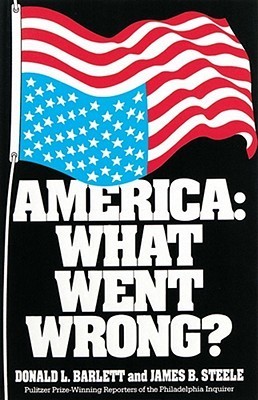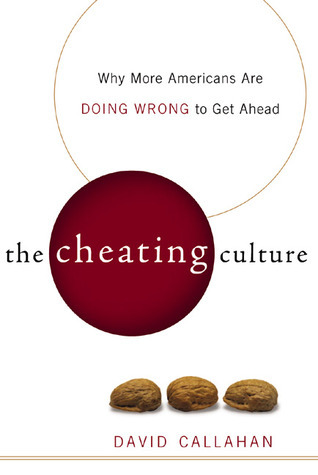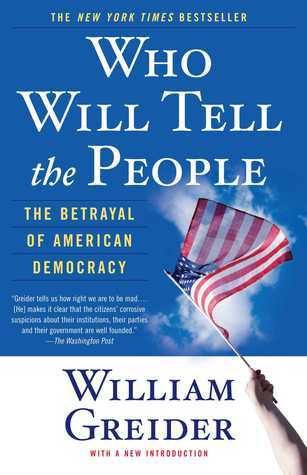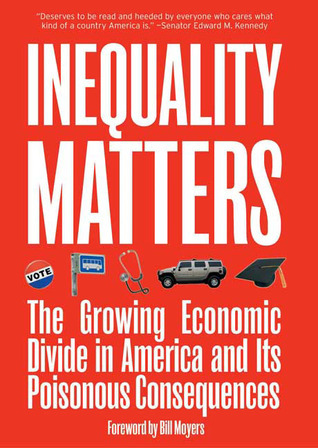
America: What Went Wrong?
Book Description
In a nation once defined by opportunity, a silent crisis looms—America is unraveling at the seams. "America: What Went Wrong?" pierces the heart of the American dream, unearthing the stark realities of economic disparity, political corruption, and crumbling institutions. Barlett's relentless investigation pulls back the curtain on the invisible forces reshaping lives and destinies, revealing a story of betrayal and broken promises. With every shocking revelation, the fabric of society hangs in the balance. Can citizens confront the forces that threaten their future, or will they remain trapped in a cycle of complacency and despair?
Quick Book Summary
"America: What Went Wrong?" by Donald L. Barlett is a compelling, investigative exposé that dissects the structural forces behind America’s unraveling social fabric and growing economic inequality. Through meticulous research and vivid storytelling, Barlett chronicles how policies favoring corporations and the wealthy systematically eroded the middle class, destabilizing the foundations of the American Dream. The book explores the shift in tax codes, deregulation, the decline of manufacturing, and the fraying of worker protections, arguing that these changes were not accidental but designed by policymakers and special interest groups. The result is a society marked by higher job insecurity, vanishing benefits, and a stark wealth gap. Barlett’s work is both a warning and call to action—challenging readers to recognize the forces of betrayal and push for systemic reform to reclaim opportunity and equity.
Summary of Key Ideas
Table of Contents
The Decline of the Middle Class
Barlett begins by charting the dramatic decline of America’s once-sprawling middle class. Throughout the decades after World War II, prosperity was widely shared. However, since the late 1970s, economic policies have increasingly favored the wealthy, leaving ordinary Americans struggling. Automation, globalization, and the decline of well-paying manufacturing jobs further intensified pressures on families, resulting in stagnant wages, precarious employment, and shrinking possibilities for upward mobility. The heart of the American dream—the belief that hard work yields rewards—was increasingly undermined by systemic changes.
Corporate and Policy Collusion
Through rigorous analysis, Barlett uncovers deliberate policy decisions that accelerated economic division. Shifts in tax policy slashed rates for corporations and the wealthiest individuals, shifting the national tax burden onto workers and the middle class. Loopholes and deregulation allowed financial interests to grow unchecked, with politicians often acting at the behest of lobbyists, not citizens. Barlett exposes how special interests reshaped rules to their own benefit, leaving communities devastated by plant closures, pension losses, and vanishing job security.
Economic Inequality and Wealth Gap
The widening wealth gap is starkly illuminated through real-life stories. As the rich accumulate vast fortunes, the bottom half of Americans see declining economic prospects. Job security is replaced by part-time and contingent labor, and benefits like healthcare and pension are eroded. In town after town, Barlett tracks the impact: blighted neighborhoods, growing poverty, and a sense of betrayal among people who feel the system is rigged against them. This growing inequality, Barlett argues, is not a random outcome but the product of conscious policy choices.
Erosion of Worker Protections
Erosion of worker protections is a central focus. Barlett details the incremental dismantling of labor unions, the offshoring of jobs, and the rise of corporate practices designed to maximize profit at workers’ expense. Key pillars—such as fair wages, job stability, and social safety nets—were systematically weakened. These changes left American workers uniquely vulnerable compared to their counterparts in other advanced nations. As protections vanished, workers bore greater personal risks, fueling both economic and emotional insecurity.
Consequences for Democracy and Society
Ultimately, Barlett warns that these trends threaten democracy itself. The weakening of the middle class and the erosion of trust in institutions lead to political cynicism and disengagement. With wealth increasingly concentrated at the top, powerful interests exert growing influence over government, shaping policies to entrench their advantages. Unless citizens mobilize to demand fair policies and accountable leadership, the promise of the American Dream may fade, leaving behind a fractured, unequal society in crisis.
Download This Summary
Get a free PDF of this summary instantly — no email required.





